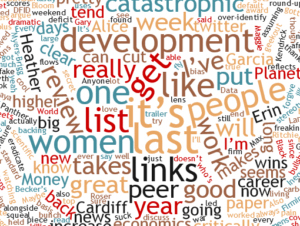Hi all,
I meant to get the links back up and running last week, but a catastrophic power cut (catastrophic because it cut both the wifi and the kettle, it was like the end of days here) put paid to that idea. On the plus side: last week, the links would have basically been one prolonged squeal of pain, roughly translatable as ‘EFFEFFESSENGLANDCANSOMEONEPLEASELEARNHOWTOBOWLABL**DYYORKER?!’, but I’ve gotten over the anguish now, so I’ll instead be miserable over the fact that I couldn’t get tickets to see Joel Embiid play against Boston last night in London. On the other hand, the time I put aside last week to finding all my favourite links of the year got swallowed up in electrician stuff so I’m afraid the planned best-of-the-year round-up had to be shelved. Sorry (for what it’s worth, the sentence of the year was from Michael Clemens: “Like killing a fly with a sledgehammer: you’re going to do more damage than good.”) Anyway, to the week’s links.
- Some of you might have noticed Stefan setting off a Twitter maelstrom over the last couple of days. A brief summary of one of his presentations (which will probably be familiar to many at DFID) on the big visions of if and how externals can ‘do’ development in poor countries prompted a Twitter firestorm over how male the list is, and an alternative list of great work by women on development by Alice Evans. I should point out that this isn’t Stefan’s list of what matters in development (the pointed commentary on the various viewpoints makes that clear, as does the absence of anything on the main concerns of his own career, including agriculture and insurance) – it’s an attempt to critically summarise what the big ‘zeitgeist-y’ takes on development have been. I agree with Alice that this makes it a very unbalanced list in terms of gender and ethnic composition, and economics really needs to get a handle on who wins influence and how; and what we can do about the biases and blind spots this causes. I note Heather Sarsons is on the job market at the moment. I hope she’s snapped up by a top school; her papers are really clever takes on this problem.
- In related news, it certainly seems that women are held to higher standards when it comes to publishing and in peer review. Research by Erin Hengel uses readability scores to argue that women are forced by peer review to improve more and faster over their career in order to clear the bar for publication; it also appears that peer review of their work takes longer than it does for men. This great long read from the Economist covers a lot of good research on how women fare in economics, and both Heather and Erin are cited (as is our new Chief Economist, Rachel Glennerster). It bothers me, though, that the default lens for thinking about bias is still Gary Becker’s – assuming that it reflects a well-thought out preference, which competition should be able to eradicate. Markets tend not to work that well, and people tend not to be that self-reflective.
- On the subject of people, do you like personality quizzes? I know a bunch of people who are addicted to them, while I’ve been dubious ever since the Myers-Brigg put me down as an introvert with a rationality deficit. Maggie Koerth-Baker from 538 seems to have found one that actually has a scientific backing. The secret? It doesn’t try to over-identify what people are like.
- Anyone who’s worked with me long enough will know that I love Our World in Data; so forgive me for having a massive geekout over this: Planet Money had Max Roser and Hannah Ritchie from the project on to discuss what the world’s headlines would look like if they were only written every 50 years (transcript). Good news gets a much higher billing, but so does the potentially catastrophic: an unprecedented reduction in global poverty alongside a terrifying increase in carbon dioxide emissions. It’s all about growth. (Also: Cardiff Garcia is now a Planet Money presenter. This has led to a dramatic increase in my standard of living, as I have the opportunity to say ‘Cardiff Garcia’ on a substantially more regular basis).
- If there was an award for most thankless but persistent calling of ‘bullshit’ this year, there would be no competition. Maya Forstater wins for her one-woman war on fake facts in the illicit financial flows literature.
- I’ve said this before, but it’s always true. Every new paper by Nick Bloom should be welcomed with dancing on the streets. This one looks at the large firm wage premium and suggests it’s disappearing on the back of outsourcing – an important companion piece to his Firming Up Inequality paper.
- And lastly, I’m really not sure if I should be watching this critically for stereotypes or just freaking out at how cool it’s going to be. The Black Panther trailer looks pretty, pretty good. (oh yeah, and the soundtrack will be written by Kendrick Lamar). Maybe 2018 won’t suck?
Have a great weekend, everyone!
R

